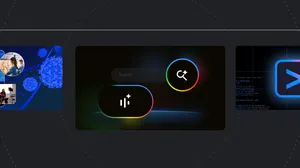For those who dream big: Announcing the winners of the 2014 Google Science Fair
Ciara Judge, Émer Hickey and Sophie Healy-Thow became interested in addressing the global food crisis after learning about the Horn of Africa famine in 2011. When a gardening project went awry, they discovered a naturally occurring bacteria in soil called Diazotroph. The girls determined that the bacteria could be used to speed up the the germination process of certain crops, like barley and oats, by 50 percent, potentially helping fulfill the rising demand for food worldwide. Oh—and they’re 16 years old.
Today, Ciara, Émer and Sophie were named the Grand Prize Winner and the 15-16 age category winners of our fourth annual Google Science Fair. They are some of thousands of students ages 13-18 who dared to ask tough questions like: How can we stop cyberbullying? How can I help my grandfather who has Alzheimer's from wandering out of bed at night? How can we protect the environment? And then they actually went out and answered them.
From thousands of submissions from 90+ countries, our panel of esteemed judges selected 18 finalists representing nine countries—Australia, Canada, France, India, Russia, U.K., Ukraine and the U.S.—who spent today impressing Googlers and local school students at our Mountain View, Calif. headquarters. In addition to our Grand Prize Winners, the winners of the 2014 Google Science Fair are:
- 13-14 age category: Mihir Garimella (Pennsylvania, USA) for his project FlyBot: Mimicking Fruit Fly Response Patterns for Threat Evasion. Like many boys his age, Mihir is fascinated with robots. But he took it to the next level and actually built a flying robot, much like the ones used in search and rescue missions, that was inspired by the way fruit flies detect and respond to threats. Mihir is also the winner of the very first Computer Science award, sponsored by Google.
- 17-18 age category: Hayley Todesco (Alberta, Canada) for her project Waste to Water: Biodegrading Naphthenic Acids using Novel Sand Bioreactors. Hayley became deeply interested in the environment after watching Al Gore’s documentary “An Inconvenient Truth.” Her project uses a sustainable and efficient method to break down pollutant substances and toxins found in tailing ponds water in her hometown, a hub of the oil sands industry.
- The Scientific American Science in Action award: Kenneth Shinozuka (Brooklyn, New York) for his wearable sensors project. Kenneth was inspired by his grandfather and hopes to help others around the world dealing with Alzheimer's. The Scientific American award is given to a project that addresses a health, resource or environmental challenge.
- Voter’s Choice award: Arsh Dilbagi (India) for his project Talk, which enables people with speech difficulties to communicate by simply exhaling.

As the Grand Prize winners, Ciara, Émer and Sophie receive a 10-day trip to the Galapagos Islands provided by National Geographic, a $50,000 scholarship from Google, a personalized LEGO prize provided by LEGO Education and the chance to participate in astronaut training at the Virgin Galactic Spaceport in the Mojave desert.
Thanks to all of our young finalists and to everyone who participated in this year’s Google Science Fair. We started the Science Fair to inspire scientific exploration among young people and celebrate the next generation of scientist and engineers. And every year we end up amazed by how much you inspire us. So, keep dreaming, creating and asking questions. We look forward to hearing the answers.






